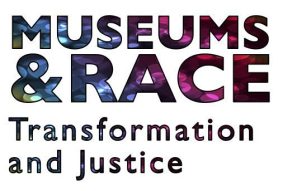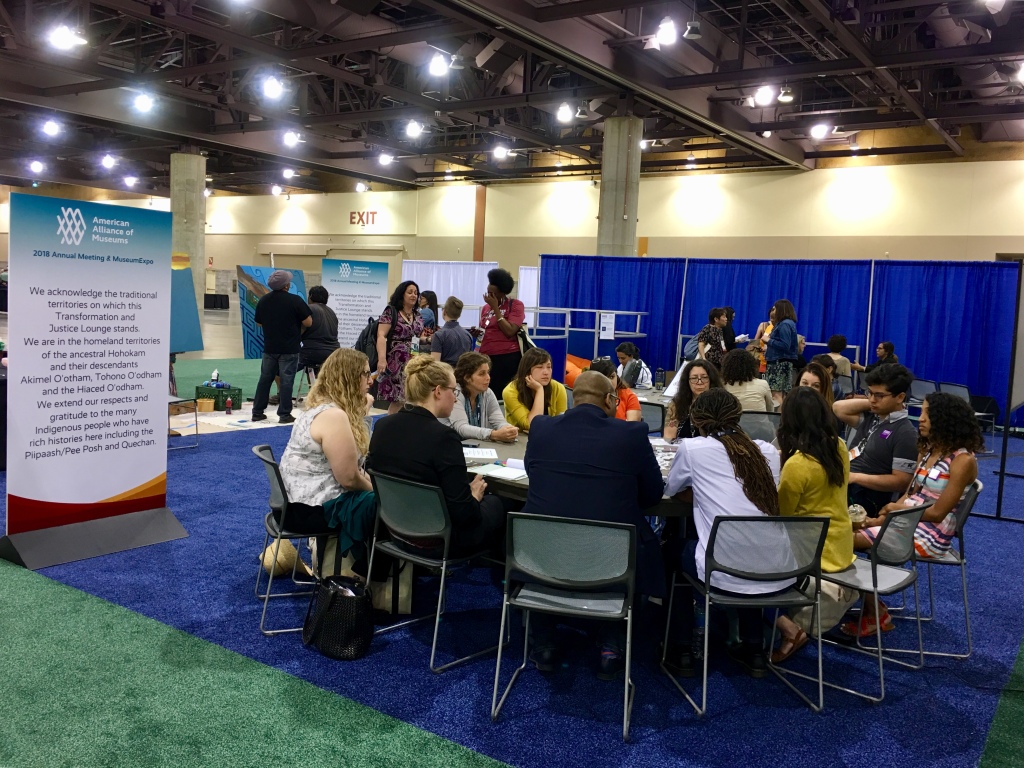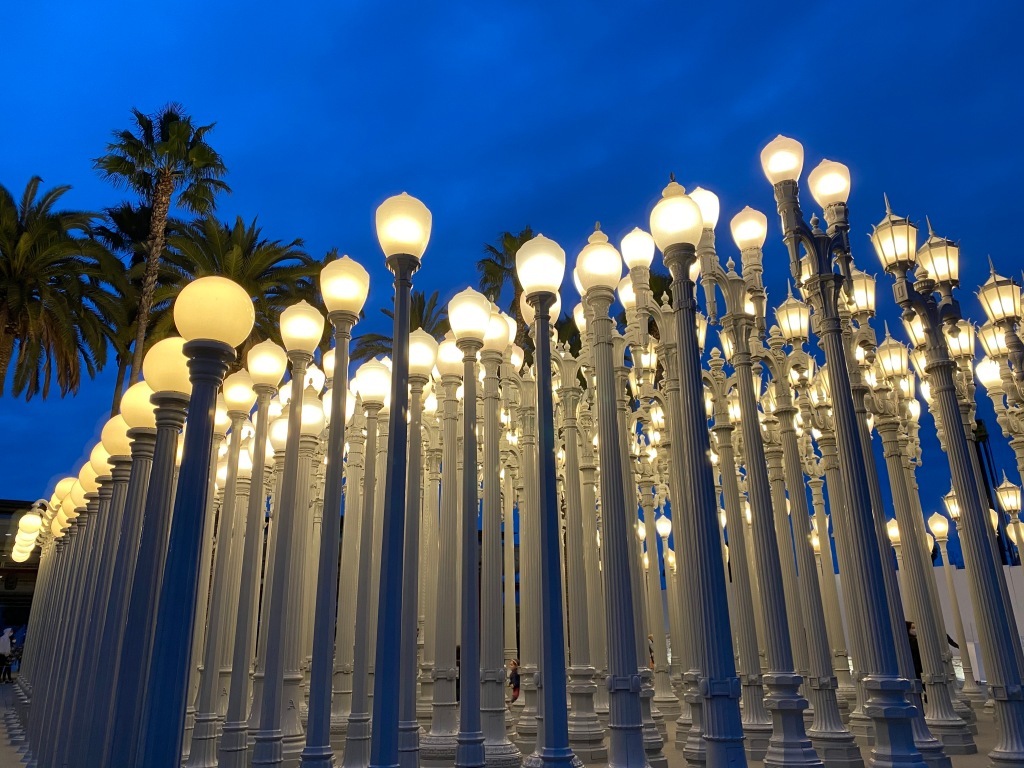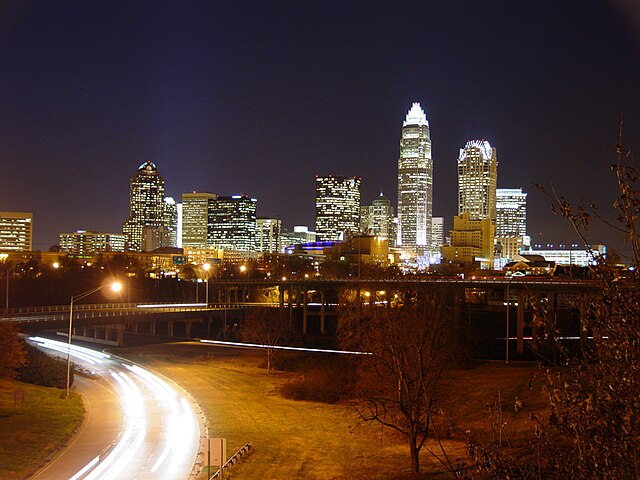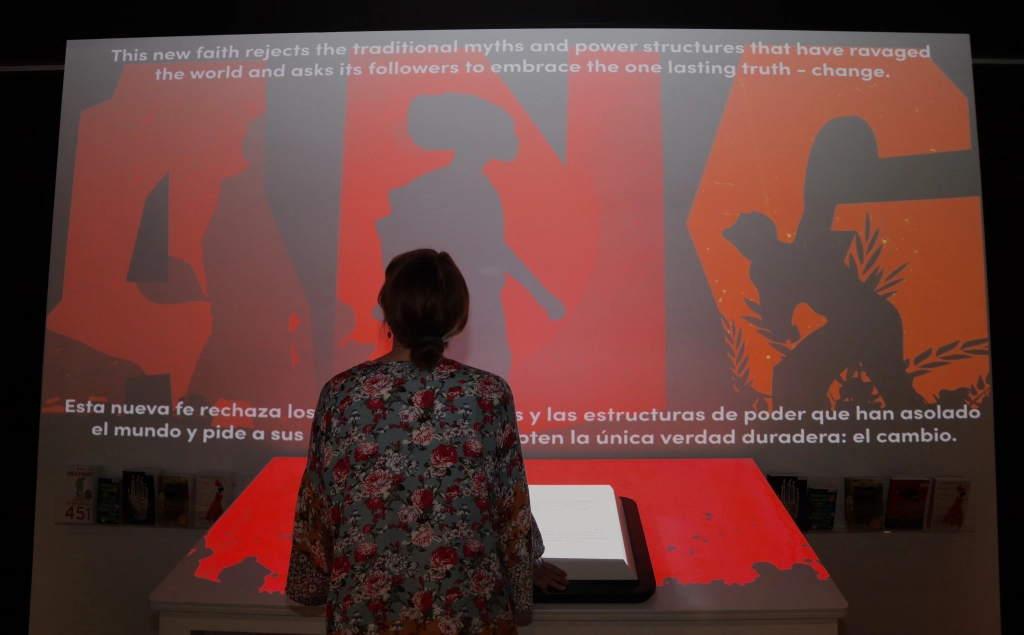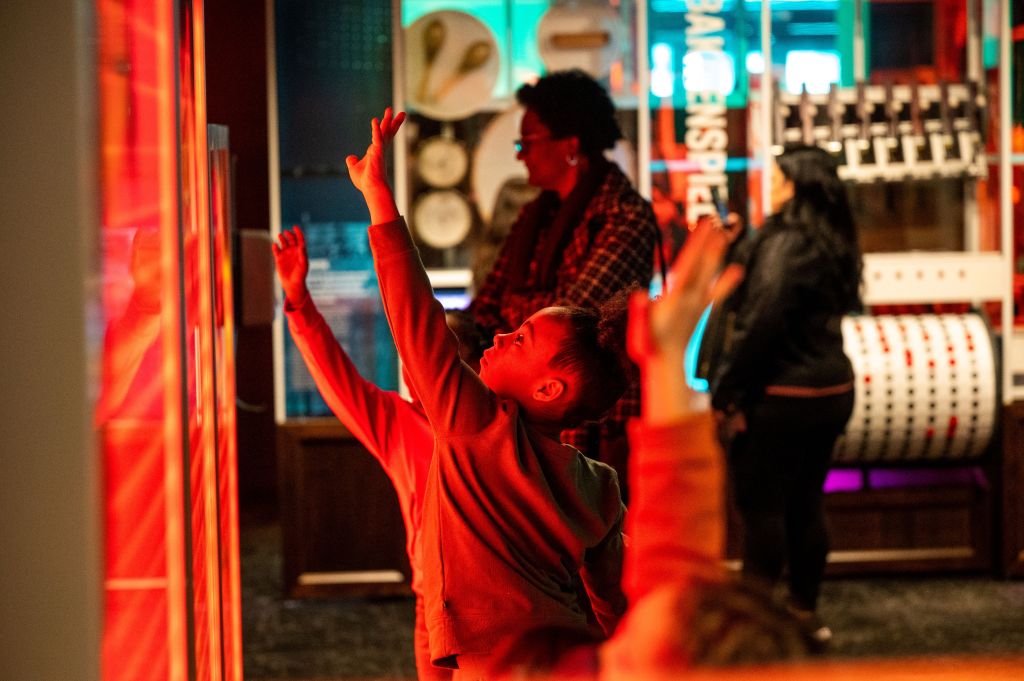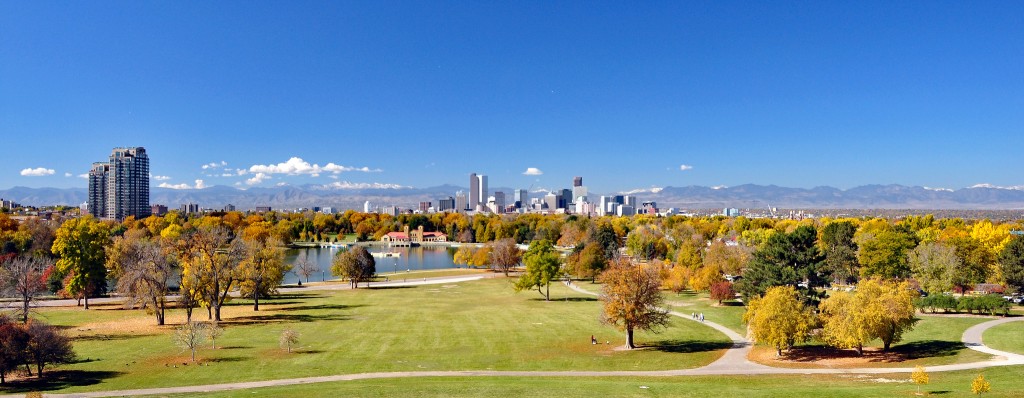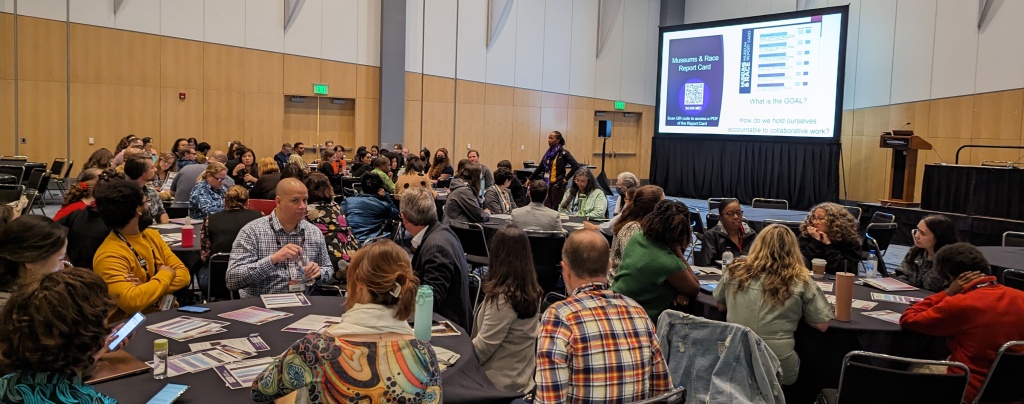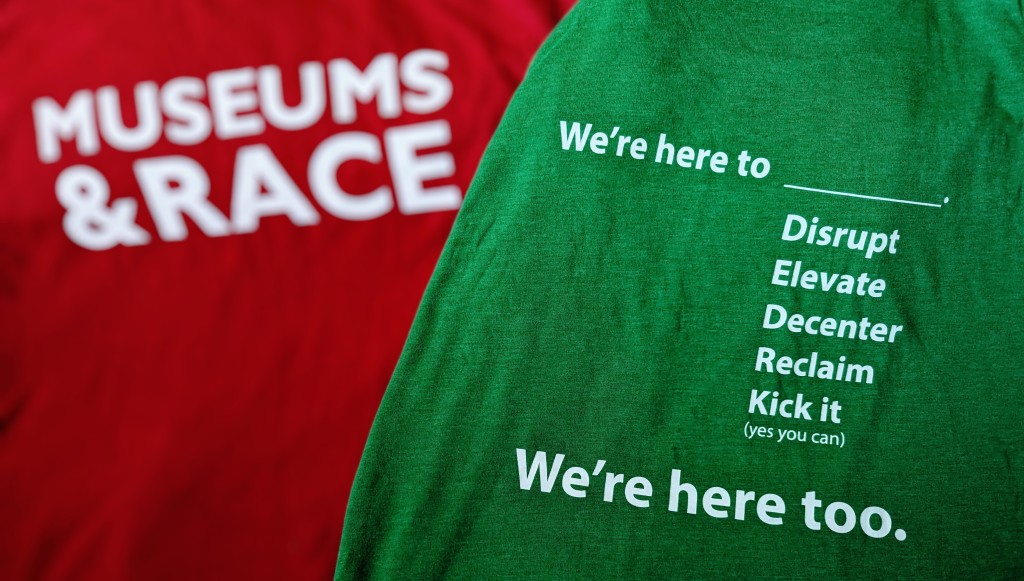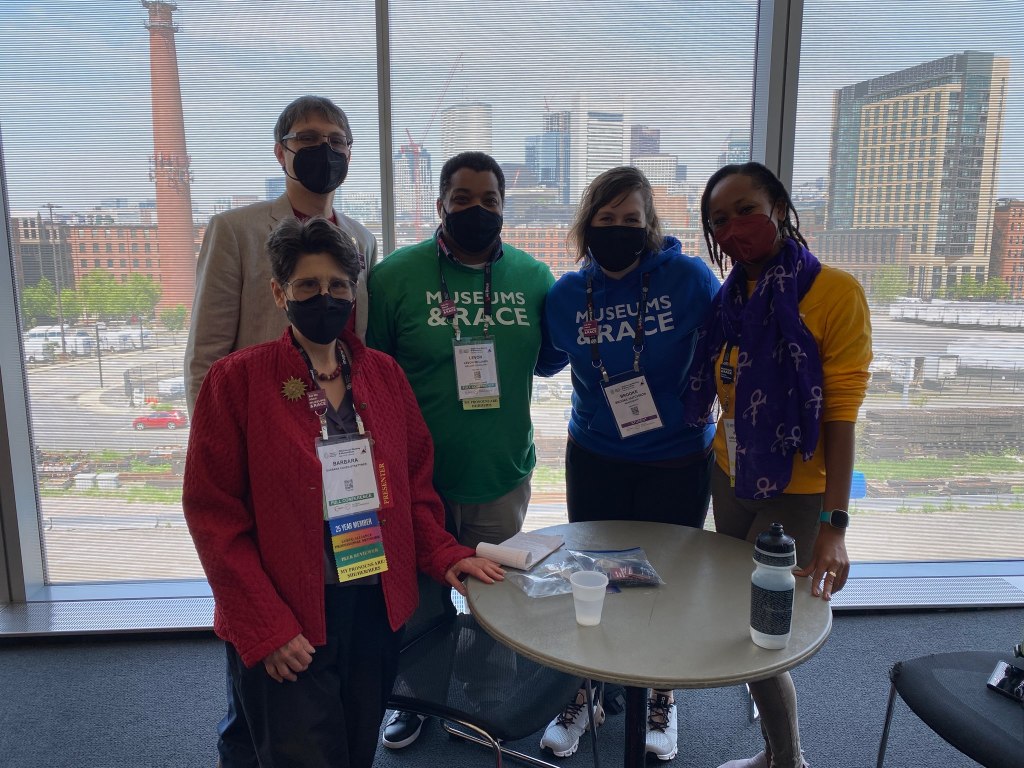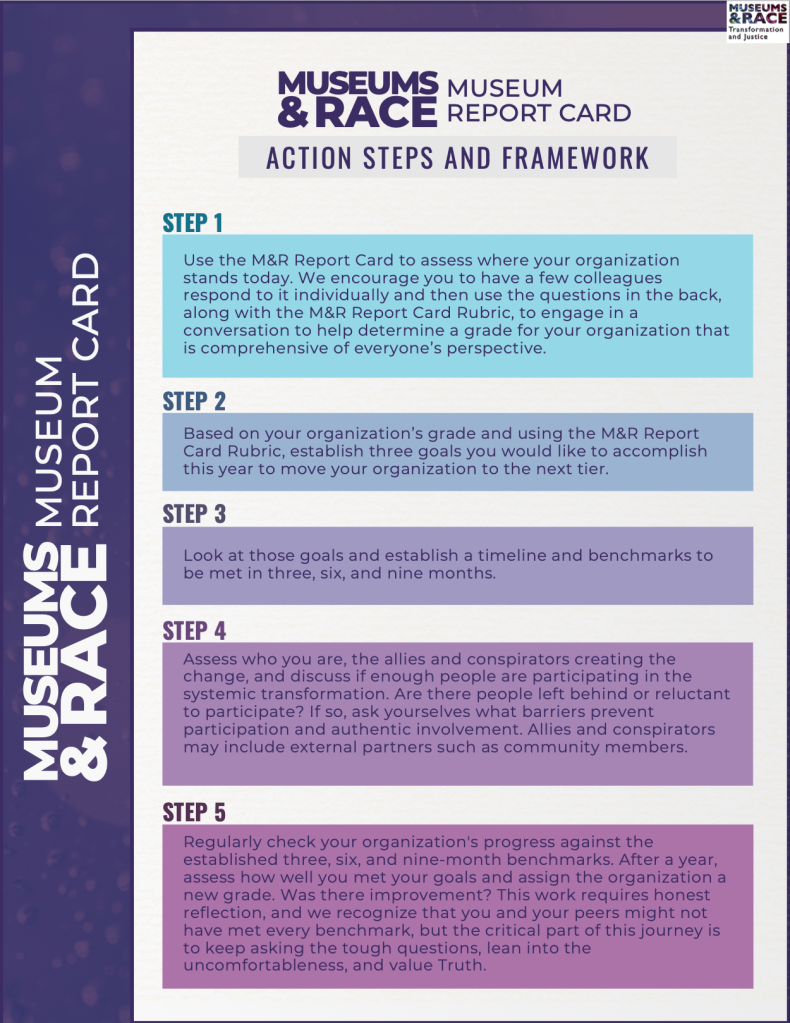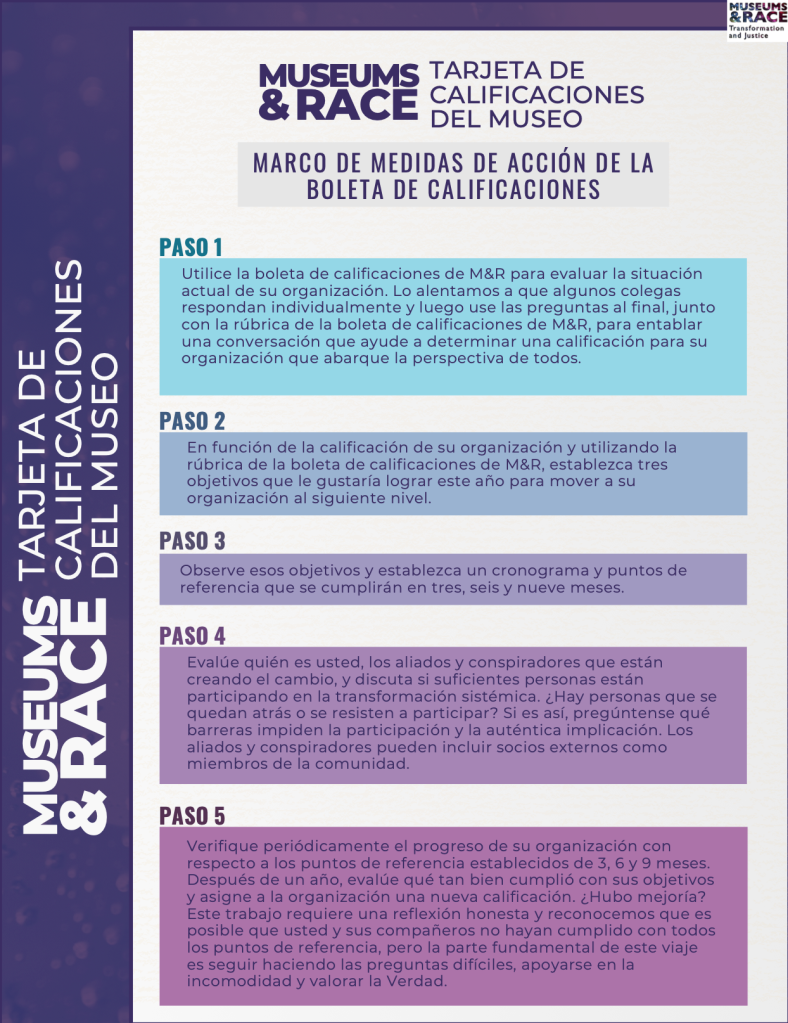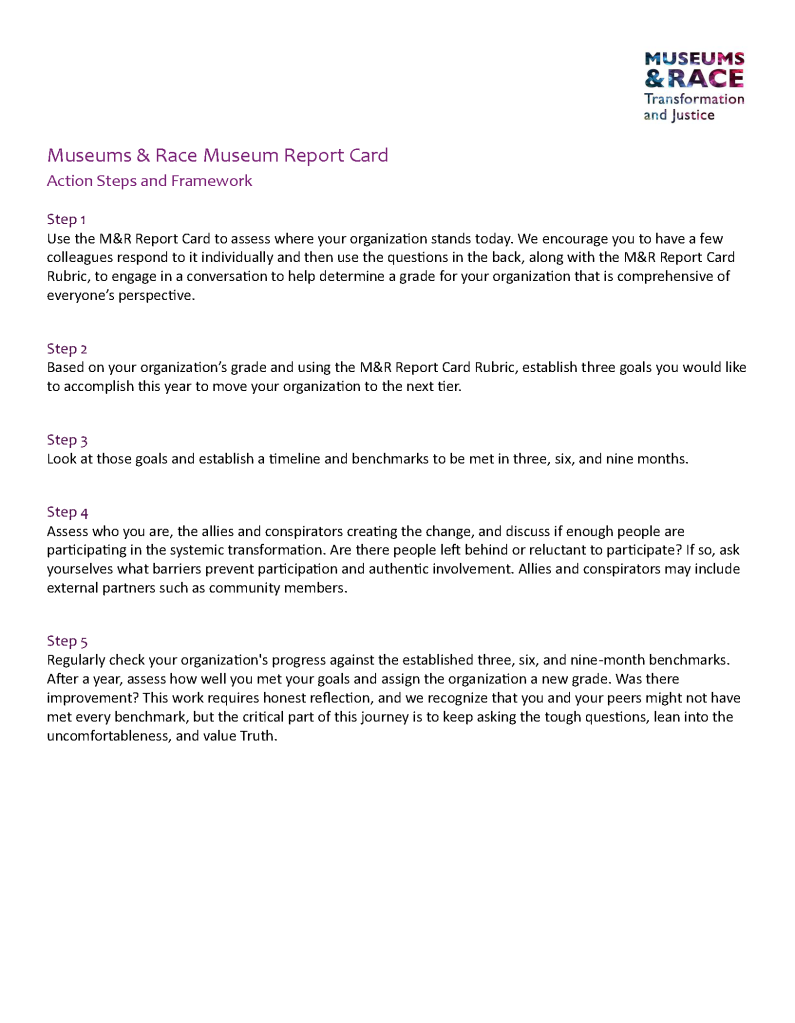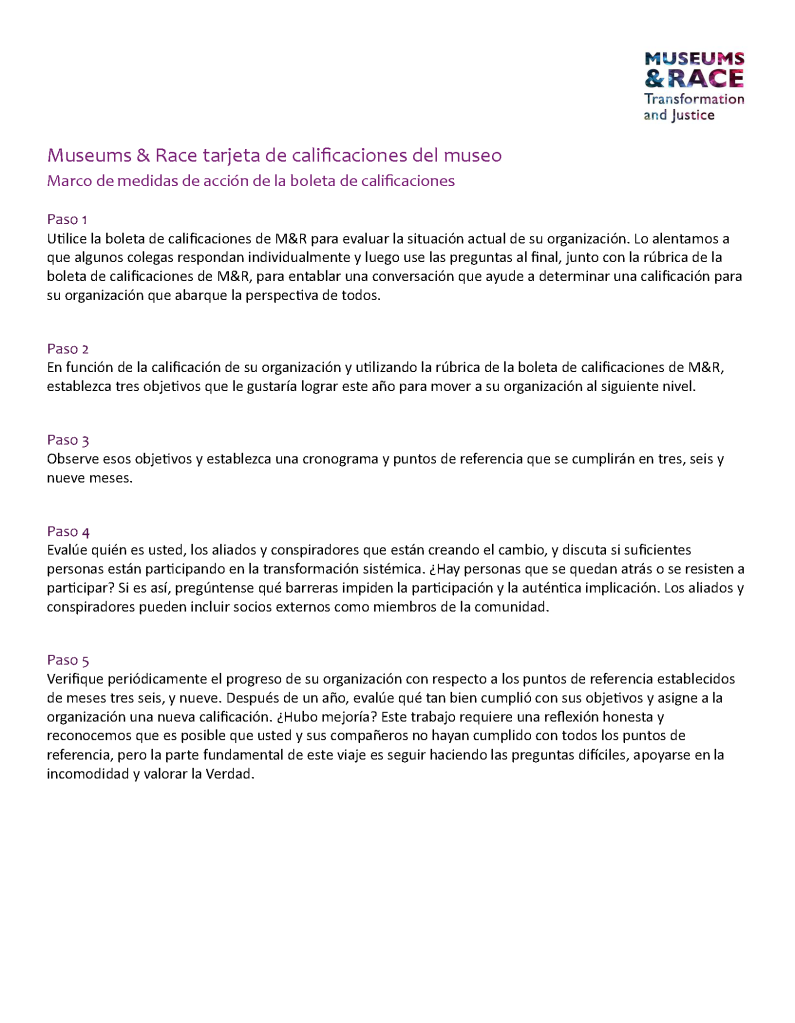We are delighted to share our third and final blog post from the 2023 Association of Science and Technology Centers (ASTC) annual conference. Members of Museums & Race were joined by panelists to discuss ways they are thinking about and implementing equity and anti-racist work in museums, including the use of the Museums & Race Report Card. The robust and lively session led us to the blog below, as we were not able to answer many questions during the session–nor as detailed or far-reaching as we would like.
You will see vital questions for our panelists, their accompanying answers for you to learn from, and the individuals who responded. We’ve consolidated a few questions for space considerations. The panelists included Joe Imholte (JI) of the Bakken Museum and Allison Campbell (AC) of University of Michigan’s Museum of Natural History, who were joined by M&R members Jackie Peterson (JP), Karlisa Callwood (KC), and Tim Rhue (TR). We appreciate their willingness to share these insights and reflections, and invite your takeaways from their learnings.
Who does the work?
- Q: Who does the report card assessment? What if different people at the organization have different opinions about where the organization is at on the assessment levels?
- Q: Our DEAI work has been somewhat siloed. Education, exhibits, and HR have all done things, but how can we get a coherent institution wide effort?
JI: In response to who completes the report card, for The Bakken Museum the DEAI Committee completes it. The DEAI Committee has 12-14 members (8-9 staff from all levels of the organization and 4-5 Board members) with 3 year term limits so aside from the CEO and the Executive Vice President (who leads the Committee) members change annually, providing continuous new perspectives to the report card.
JI: In response to how to get a coherent institution-wide effort, that is hard unless your leadership team sees this work as urgent (urgent here meaning the work is critically necessary, not urgency is in expediency). If you don’t have leadership support, you can still drive change, but to do so you will need to build coalitions. Bring the siloed groups together to see what work you can do together – don’t worry as much about trying to convince others. If the work is having a positive effect, and the successes the group achieves (including small ones!) are communicated, more people will want to become engaged/involved, and over time the culture will shift. All culture work takes time (meaning years), and attempting culture change without leadership support is possible, but it takes even longer (more years). For this kind of change, I recommend looking to adrienne maree brown’s principals of emergent strategy for support – especially “there’s always enough time for the right work” and “move at the speed of trust. Focus on critical connections more than critical mass — build the resilience by building the relationships.”
KC: I agree that there’s value in having teams that are not only cross-departmental, but also cross-level. It’s also important for other teams to identify how they can contribute to the efforts so that it’s not just the responsibility of the Education, HR, and exhibits teams. How can the marketing team ensure that there’s appropriate representation in their images? (e.g. Certain groups are overrepresented when promoting access programs.) How can the cafe or store teams help identify and promote Black and/or women owned small businesses as vendors? Etc.
Goals
- Q: What goals with metrics do you set? Example: do you set up goals that get to diversity metrics of hirings, or metrics of applicants, or is it more about goals around DEI trainings and / or inclusion surveys?
JI: I’m a little wary of goals with metrics for DEAI work, as I think they can trick us into doing box checking work to reach goals rather than the deeper systemic work that takes time and is more difficult to measure progress. For example, The Bakken Museum’s staff is very white. We want to have more BIPOC staff. And, I believe there is a difference between hiring BIPOC staff and being a place BIPOC staff want to work in. We could set a hiring goal and potentially reach it, but if we’re not a place where everyone believes that they can bring their whole selves to work, will we retain the staff we have hired? The harder to measure work is to look at our culture and practices and the systems we have in place. Understanding the history museums have with BIPOC communities, understanding our own biases and where they are impacting who works here and what the experience of working here is like. We’ve taken an approach of using a Theory of Change which identifies activities we’re doing to reach mid-term outcomes. Eventually we’ll return to this Theory of Change and see if what we have learned or done has changed anything related to our outcomes.
KC: Also think about how you can build accountability by creating updates at regular intervals for staff and the community to share back progress, both successes and failures, and receive feedback.
Fundraising / Budgets
- Q: What advice would you give to people who are advocating for more money and resources, but receive a constant response of, “we’ve maxed out our resources”? It feels like getting a grant is the only way to support this work…
JI: It is hard – within nonprofits using resources on DEAI work can feel to some like “taking” resources from other areas – or at least that’s how it can appear. When developing a program that has funding, how is DEAI incorporated? For a program for the floor, can existing time/funding be used to build in a step to spend time to consider how bias might be shaping the content or to ensure that multiple identities are represented? I go back to adrienne maree brown’s principles again – small is all. When we think of funding, we often think about the big institutional level of funding, but we all have things we influence or control. How do we build the work into those things? If the organization isn’t prioritizing funding for DEAI, are they ready to do something meaningful with the funding if they had it? I also don’t want to dismiss the power of grants. Yes, having a funding stream specific to DEAI would be amazing, but I’ve done a lot of work with grants that have helped move the ball forward that otherwise would not have happened. “What you pay attention to grows” – how something is funded in some ways is second (to me) to the fact that through a grant we’re now paying attention to something we were not before.
- Q: How do you build a budget for something like this? What should we account for?
JI: If the question is about completing the report card, leadership can say that work time will be spent completing the report card and discussing the results. If we’re talking about DEAI work more broadly, there are lots of ways if funds are not available through your organization’s budgets. I have applied for grants from federal and state agencies, and local foundations are also a possibility. The funds might be already in the project you are doing, the DEAI work just needs to be identified and prioritized.
Adversity
- Q: How do you respond when you put forward DEI mesures and you are told it is out of scope?
- Q: We are just starting this work and are wondering: How do we navigate incorporating this work into an environment like GA or FL where legislation disallows this work?
JI: These are particularly hard, as context is so important, and the organizational cultures may not support the work. Work on the things you can change and can do – small is all, the large is a reflection of the small. Take the time to celebrate wins when you have them. Look for another job if the difference between your values and the organization’s values (or the leadership’s values) are too much and find an organization with a better match with your values. As for the question about the states, that is one that is difficult. I’ve not had to encounter this and so I wonder if any of the suggestions I am about to offer are problematic… One idea is to just do it anyway but don’t call it “DEAI work” or just do it without calling attention to it. For example, for ensuring representation of a range of identities in an exhibit could be a step in the development process be a “content review to ensure relevance with intended audiences” or some such? Going back to the small is all idea, make small changes where you can that will affect systems such as if you are partnering with a university, seek out a tenure-track professor from a marginalized community. By working with your organization that individual gets closer to tenure, and with tenure they can have more security and influence at their university. (Credit to Cynthia Sharpe who shared this idea with me.). I think communicating across organizations and sharing ideas in these states would be huge – learning from what others are doing and sharing what you are doing.
TR: We heard from a few people at the conference about the question of states where the overall culture and legislation sets up existential barriers for equity and justice. This is a topic that Museums & Race would like to explore more. If you, reader, have thoughts or examples of how you’ve approached this issue, please reach out to us. Perhaps we can put together a resource for others with sufficient examples. We are happy to anonymize or provide full credit as you desire.
JP: From a public-facing perspective, I think grounding the work in community engagement or outreach is a way to talk about it and ground your work in DEAI without explicitly calling it that. Growing community partners is always a good thing. While Museums & Race is more explicitly focused on race within our equity work, we always encourage people to think of equity work from the perspective of intersectionality and in the broadest sense. How is your organization welcoming people with disabilities or neurodiverse people? How is your museum engaging with your community’s elder population, or people who speak English as a second language? I also encourage museum staff to simply show up in their communities and listen to what folks are talking about and what they need. Again, museums can be responsive in creative ways that don’t need to be explicitly about DEAI – it’s just being a good, supportive presence. In terms of internal DEAI work, that’s probably a bigger challenge. One thought is approaching it as values-centered work. What are your institution’s core values? Whose voices and perspectives would your institution like represented?
Document Request
- Joe, would you be willing to share the gender transition documents you mentioned with other institutions?
JI: I would be happy to! It is a part of our handbook, and it draws heavily from resources available from resources provided by the Human Rights Campaign. Rather than including the whole handbook (though I think it would be fine to share that if anyone wanted to see it) I’ve pasted the content into a separate document that should be able to be accessed here:
Bakken Museum Gender Transition Guidelines
We’d welcome feedback if anyone has any to offer to improve this!
